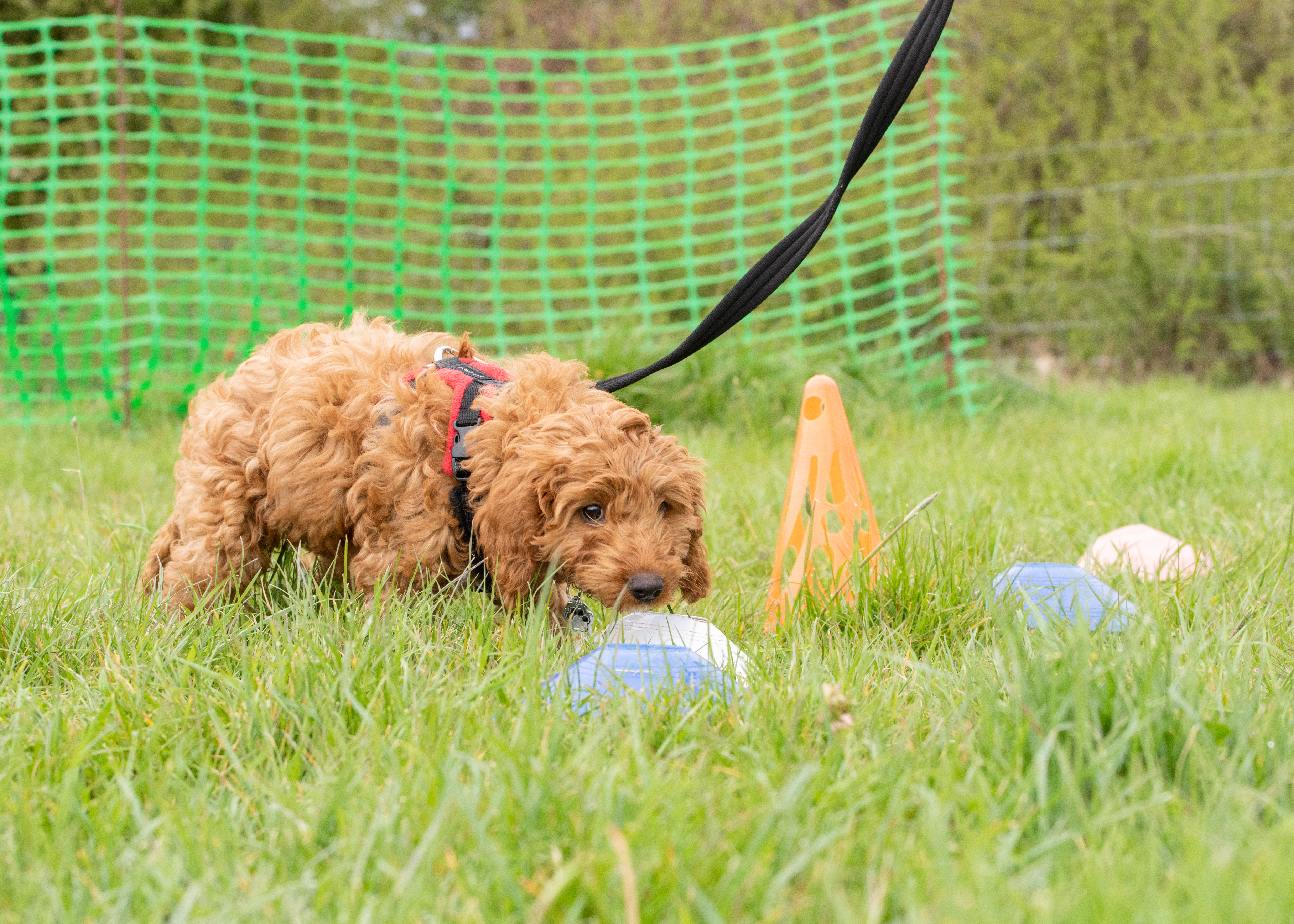
When welcoming a new puppy to the home there is SO much to think about and prepare for. It’s hard to know where to begin - what should be prioritised and what can wait a few weeks or months. Training is often something that is pushed down the priority list because new puppy owners think ‘let’s get them settled first’ or ‘let’s wait to see if they need it’, when it is actually the most important thing to have in place to ensure your success as a dog parent.
My puppy needs training
A common phrase is ‘my puppy needs training’ which implies that the puppy is naughty or misbehaving. Although commonly referred to as dog trainers, a more appropriate title would be ‘Dog care-giver educators’ as we train you, yes YOU, not the puppy. Our main job is to help you understand what your puppy needs, how to understand the species, the best methods and ways to set them up for success, and how to help them learn new things.
Failing to prepare, is preparing to fail
This is one of my favourite quotes and it is SO true. It is never too early to begin your education in how to raise a dog/puppy.
You should begin this journey before you get your puppy and, ideally, before you even decide to get a puppy. The more knowledge you have, the better prepared you will be to choose the best dog for your family – whether that knowledge is gained by reading good books, following dog trainer social media accounts or by getting in touch with a local trainer to help guide you.
Our ‘So, you’re getting a puppy’ webinar encourages you to think about whether puppy is right for you, looks a budgeting, breeder vs rescue and preparing for puppy’s arrival.
Start looking for a local trainer who provides Puppy training classes or 121s as soon as you can, so you are booked in and ready to begin your journey as soon as possible. Most puppy classes get booked up very quickly particularly in the New Year and summer months so don’t leave it too long – book your space as soon as you know when you’ll be bringing puppy home.
Many trainers will also provide advice before your class begins to ensure success, and may even offer a Pre-Puppy Consultation to help you prepare your home or offer advice and support in selecting the right breeder.
They’re too young….
Your training begins the moment you collect your puppy!
It may not feel like formal training, but teaching them how to be relaxed in your home, what to chew, where to sleep/wee are probably the most important, yet most overlooked, aspects of puppy training.
Reputable and responsible breeders will have already begun with some aspects such as toilet training, crate training and socialisation – so some foundations may already be in place for you to continue your training journey.
What to teach first
Most puppies are taught how to sit as their first skill. Yes, it is useful and important, but is it really THE most important thing? Don’t focus too much on ‘obedience’ behaviours in the first few weeks: a dog of any age can be taught to sit but focussing on those all-important settling-in skills will have a far greater benefit in helping your puppy to adapt and adjust to his new life as part of your family.
What age should classes start?
We mentioned that training starts straight away, but when is the best age to start group classes?
The answer is as soon as possible!
Most group classes require your puppy to have had at least their first vaccination (some require two). It will depend on your trainer’s policy, but around 9-12 weeks is the optimum age to start classes.
You might think this seems really young and your puppy won’t be able to concentrate, but trainers expect puppies to be distracted and to even fall asleep in class, so this happens it really doesn’t matter. Don’t forget, classes are primarily to teach YOU and facilitate a positive bond between you and your dog, so as long as you are listening and asking questions it won’t matter if puppy is snoozing.
In the first few weeks, it’s all about getting used to the environment, watching new people and other puppies. Our group classes plan for the first couple of weeks to be ‘settling in’, with fun activities designed to relax owners and help puppies become comfortable in the class setting before moving on to more structured activities –meaning the course is designed to grow with your young puppy.
Remember the sooner you start classes, the sooner you have a team of supporters. You’ll share your successes, tips and learns with your class mates, with your trainer available to provide guidance and support.
Is it too late?
If you’re puppy is a little older, maybe even too old for puppy classes, it’s not too late. Whilst starting earlier is preferred as it’s easier to make habits than break them, dogs can learn new things at any age.
Don’t despair if you missed out when puppy was small – contact your local trainer today for tailored support at any stage of your dog parenting journey!
For more information on puppies, check out our other blogs Steps to the Perfect Family Dog or My Puppy needs a play date